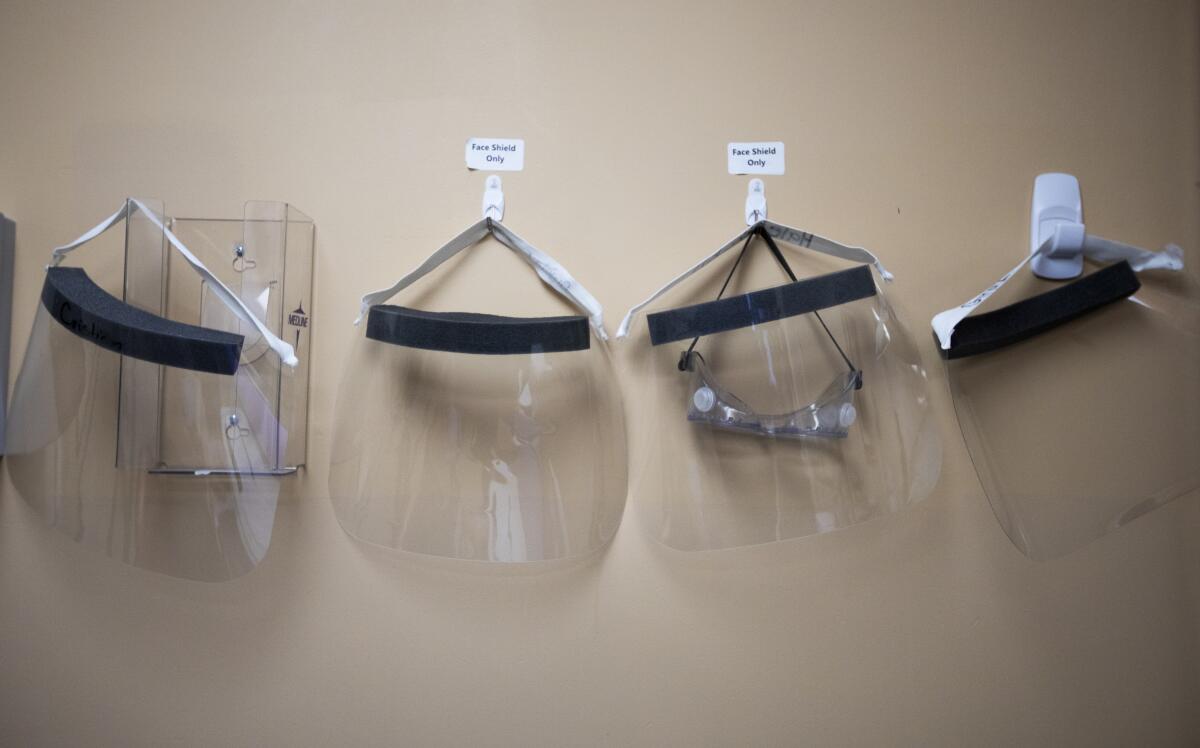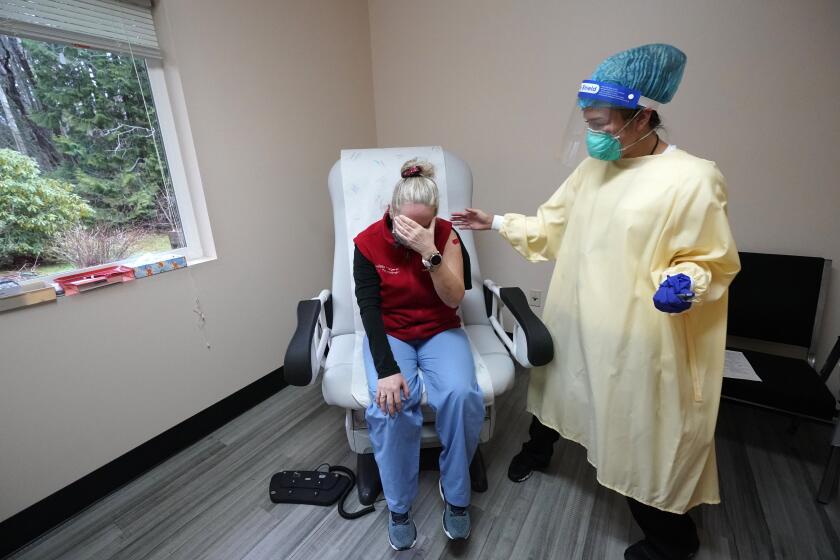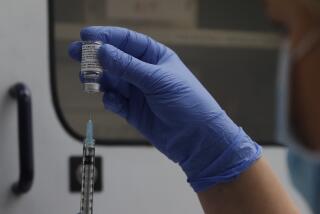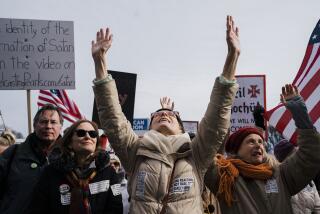A doctor’s view: Healthcare workers who refuse COVID-19 shots are selfish

- Share via
I’m where no neurosurgeon wants to be before performing an emergency surgery — outside the operating room in the hallway. Usually, I’d be inside, quietly watching, making sure everyone is doing their part, so that things go as smoothly as possible. But this patient’s coronavirus test, administered during routine preoperative work, came back positive.
Why am I waiting outside? The most dangerous moment is during intubation, when a breathing tube is inserted into the windpipe so anesthetic gases can be administered and breathing supported during the operation. Inevitably, saliva and other respiratory tract secretions — where the virus hangs out — are aerosolized and circulate in the room.
I am wearing full gear, including a medical-grade N95 mask. I’ve even had my first COVID-19 vaccine shot. Anesthesiologists do everything they can to lower aerosolization of the virus at the time of intubation. But being inside the OR at that moment means taking a chance that I could not only get sick but also spread it to others, including to colleagues outside this OR and my patients. The end of the procedure will mirror the beginning: Everyone who doesn’t have to be there will leave while the tube is removed.
The OR staff is kept to a minimum, and everyone in the room has volunteered to work there. Some have signed up because they have already had the virus. One doctor survived COVID two months ago; his sister died from the virus last spring. A scrub nurse has also battled the virus.
During surgery, the team always struggles to hear one another — the extra-thick masks and face shields mute sound. At one point, we all mention we’ll receive the second round of the vaccine the next day. Well, all except one.
One team member says he doesn’t want to get the shot, at least not yet. The anesthesiologist is flabbergasted. My immediate impulse is to tell the naysayer to get out of the OR and never come back. Instead, I quickly compose myself and ask, “Why on Earth not?” Silence. Then I hear an “I just want to wait and see.”
And I thought our greatest risk would come from the patient, anesthetized on the table.
I wish I could say this anti-vaccine stance among medical staff is unusual, but I have talked to nurses and even an emergency department doc who don’t plan to get a COVID-19 shot.
Many teachers, grocers and even some hospital employees are wary of the COVID-19 vaccine and don’t want it. The question of mandatory vaccine requirements by employers is complicated.
As many as half of the front-line workers in Los Angeles County have refused to take the vaccine. In my hospital, many of those who say they don’t trust it are under 40 and have not been personally touched by COVID. They may fear the vaccine was developed too quickly to be safe or worry it could leave them infertile.
By the time it was approved, the Pfizer-BioNTech vaccine had been given to about 20,000 volunteers without serious incident. Now millions have received it. Other than a very small number of allergic reactions, which can be scary but are easily treated, zero serious side effects have been documented. Some side effects may eventually show up from this or other COVID-19 vaccines. But that is part of the everyday practice of medicine. People react to anesthesia, some are allergic to antibiotics, others have issues with blood pressure and cholesterol medications. I could go on.
Those of us in medicine spend our careers administering treatments that are statistically far more dangerous and less proven than this vaccine. Even the surgery I perform this day comes with a risk it won’t work; it could worsen the patient’s condition. But the alternative to surgery in this case is permanent disability.
COVID can mean death, maybe not for you, but for someone you come in contact with and inadvertently infect. And if you work in healthcare, you may end up passing the virus to your sick patient, who is more vulnerable to the disease. Yet some people who have chosen to care for the sick want to wait to make sure the vaccine is safe before they get it?
These people who don’t trust “the man” and think they can beat the virus on their own are selfish. Getting vaccinated against COVID-19 is a civic duty, a little like paying taxes — a far more painful activity. If a few people don’t pay their taxes, society will still run smoothly. But if too many opt out, things fall apart.
Making the choice to get vaccinated against the coronavirus shouldn’t be only about what you want to do, especially if you work in medicine. If you don’t trust medical research, and the recommendations that come from the highest level of medical oversight and study, then what are you doing in medicine? And why do you stay?
To protect my medical team and my patients, as well as my family and myself, I just got my second COVID-19 shot.
Ian Ross is a neurosurgeon who practices in Southern California.
More to Read
A cure for the common opinion
Get thought-provoking perspectives with our weekly newsletter.
You may occasionally receive promotional content from the Los Angeles Times.










